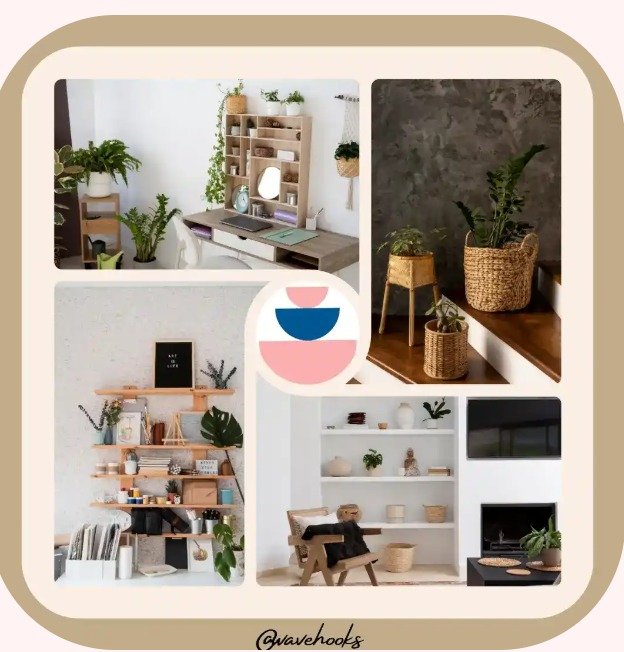For many individuals with disabilities, finding suitable living arrangements that promote independence, safety, and well-being can be a challenging process. Fortunately, Specialised Disability Accommodation (SDA) and Supported Independent Living (SIL) providers offer valuable services that cater to the specific needs of people with disabilities, ensuring they have access to safe, supportive, and empowering environments. In this blog, we will delve into the concept of Specialised Disability Accommodation, explore the role of SIL providers, and discuss how these services help individuals with disabilities lead fulfilling lives.
What is Specialised Disability Accommodation (SDA)?
Specialised Disability Accommodation (SDA) refers to housing solutions specifically designed to meet the needs of individuals with significant and complex disabilities. These accommodations are typically tailored to provide more than just basic shelter; they aim to enhance the quality of life for individuals who require specialized support due to their disabilities. SDA can be thought of as a more comprehensive housing arrangement that takes into account the person’s physical and sensory needs, as well as the type of support they require for daily living activities.
SDA can be offered in various forms, depending on the level of care needed. The key features of SDA typically include:
- Accessibility: SDA is designed with accessibility in mind. This includes wheelchair-friendly layouts, wide doorways, and adapted bathrooms to ensure that individuals with physical disabilities can navigate the space with ease. Homes are designed with features like ramps, hoists, and specialized furniture that help support the individual’s mobility needs.
- Specialized Equipment and Technology: Many SDA properties are equipped with specialized assistive technologies that help individuals with disabilities complete everyday tasks. These may include automatic doors, voice-controlled technology, emergency call systems, and other devices that enhance safety and independence.
- Personalized Design: SDA properties can be customized to meet the needs of individuals with different disabilities. Whether it’s sensory processing challenges, physical impairments, or intellectual disabilities, the living space can be modified to support each person’s unique requirements.
- Community Integration: While some individuals may prefer living in residential care facilities, SDA properties often encourage individuals to remain integrated within their communities. These homes may be located in more independent living areas, allowing residents to interact with others and access public services.
The primary goal of SDA is to provide a home where people with disabilities can live as independently as possible while receiving the support they need. This may include personal care, assistance with mobility, and more intensive health care interventions.
The Role of SIL Providers
Supported Independent Living (SIL) is a service that complements SDA by providing personalized support to individuals living in their own homes or in SDA settings. SIL providers offer assistance to individuals with disabilities who want to live more independently but require some level of help with daily tasks.
SIL is an essential service for people with disabilities who have the ability to live independently but need support in specific areas. These services are flexible and tailored to the needs of the individual, and can vary from just a few hours of support per week to full-time care, depending on the person’s requirements.
Key aspects of SIL support include:
- Personal Care Assistance: SIL providers help individuals with daily living activities such as dressing, bathing, eating, and managing personal hygiene. Support is provided in a respectful and empowering manner, promoting independence and dignity.
- Household Assistance: SIL providers assist with household chores such as cleaning, cooking, grocery shopping, and managing finances. The goal is to help individuals maintain a clean, organized, and functional home, while also fostering life skills that can support their independence in the long term.
- Community Access and Social Participation: SIL providers encourage social engagement and community participation. This may include assisting individuals in attending social events, appointments, or recreational activities. It also involves supporting individuals to build relationships and establish networks within their communities.
- Health and Medical Support: For individuals with complex medical needs, SIL providers may assist in coordinating healthcare services and ensuring that necessary medical appointments, medications, and treatments are maintained.
- Skills Development: SIL providers often focus on developing skills that can help individuals become more independent. This might include support in learning budgeting, meal preparation, time management, or self-advocacy.
The Relationship Between SDA and SIL Providers
While SDA and SIL are distinct services, they often work hand-in-hand to provide a comprehensive care model for individuals with disabilities. Specialised Disability Accommodation offers a safe and accessible living environment, while SIL providers offer the support necessary to help individuals live independently within that environment.
For example, an individual with a physical disability who is living in an SDA property may require a SIL provider’s assistance with personal care, mobility aids, and daily tasks.
The integration of SDA and SIL services allows individuals to maintain a higher level of independence and participate more fully in society. Together, these services provide a robust solution for people with disabilities to live in a way that is both empowering and dignified.
Benefits of Specialised Disability Accommodation and SIL Providers
The combination of Specialised Disability Accommodation and SIL services brings a wide range of benefits to individuals with disabilities, including:
- Promoting Independence: SDA and SIL services support individuals in living as independently as possible. Whether through the accessibility of the housing or the assistance with daily tasks, these services help individuals maintain control over their lives while ensuring that they have the support they need.
- Improved Quality of Life: With tailored accommodation and personal support, individuals can experience a better quality of life. They have the opportunity to engage in their communities, pursue education or employment, and live in a setting that meets their needs.
- Increased Safety and Security: SDA properties are designed with safety in mind. Features such as emergency call systems, adaptive technologies, and personalized design elements ensure that individuals feel secure in their living environments. Additionally, SIL providers assist in managing health and medical needs, reducing the risk of accidents or emergencies.
- Holistic Support: SDA and SIL providers work together to ensure that individuals receive holistic care. From the physical environment of their home to the social and practical support they receive, people with disabilities can feel more confident in managing their day-to-day lives.
- Social Inclusion: One of the most significant benefits of SDA and SIL services is their ability to promote social inclusion. By helping individuals live in accessible homes and participate in the community, these services foster connections, friendships, and opportunities that may not be available otherwise.
How to Access SDA and SIL Services
Accessing Specialised Disability Accommodation and Supported Independent Living services typically involves a few key steps:
- Eligibility: To access SDA and SIL services, individuals must meet certain eligibility requirements. These are typically based on the nature and complexity of their disability, as well as their need for assistance with daily living. Individuals can access these services through government funding schemes such as the National Disability Insurance Scheme (NDIS) in Australia.
- Assessment: Once eligibility is established, an assessment is typically conducted to determine the level of support required. This will involve evaluating the person’s needs, preferences, and goals to ensure that the services are tailored to their specific situation.
- Choosing Providers: After the assessment, individuals can choose providers of SDA and SIL services. This process may involve researching different providers to determine which ones offer the best fit for their needs. It is essential to consider the provider’s reputation, services offered, and their ability to meet the individual’s specific requirements.
- Ongoing Support: Once services are in place, individuals will continue to receive support tailored to their needs. Regular reviews and assessments ensure that the services provided remain relevant and effective as the person’s needs evolve.
Conclusion
Specialised Disability Accommodation (SDA) and Supported Independent Living (SIL) providers play a critical role in empowering individuals with disabilities to live more independently and improve their quality of life. These services offer personalized support, accessible housing, and a holistic approach to care that encourages social inclusion, safety, and independence.
For individuals with disabilities, SDA and SIL providers are vital resources that foster a sense of dignity, autonomy, and community participation. By working together, these services help create a supportive environment where people with disabilities can thrive and reach their full potential. Whether through adaptive housing solutions or day-to-day support, the combination of SDA and SIL offers individuals with disabilities the opportunity to lead fulfilling, independent lives.



